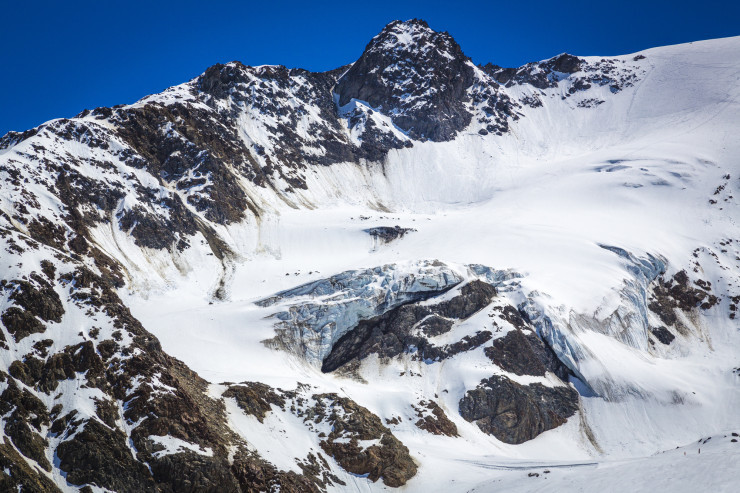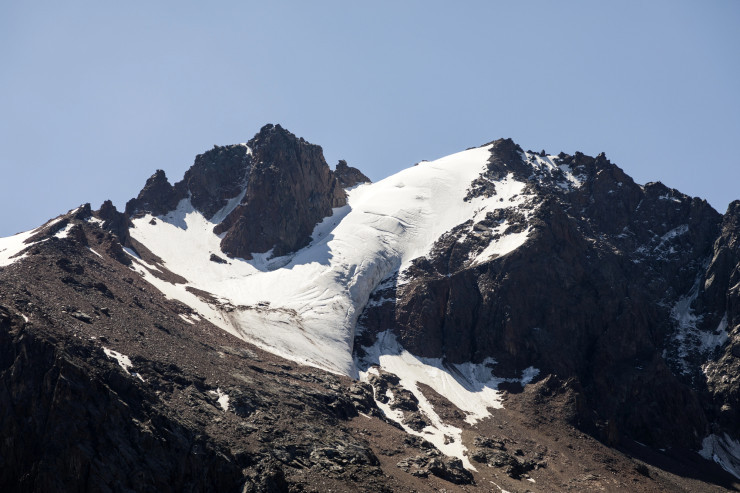Tengrinews.kz - Autumn is a wonderful time for hiking in the mountains. The cool, crystal-clear air and the ringing silence will help clear your mind and body of the city's hustle and bustle, allowing you to feel free and test yourself. However, the autumn mountains hide many dangers, and here are some key recommendations to help make your hike safe and comfortable.
Clothing and equipment selection
Layers of clothing
The mountains of Kazakhstan can be deceptive: it may be warm at the base, but cold and windy at higher altitudes. Use the layering principle.
For moisture wicking, it's better to use thermal underwear made from polyester and nylon, as these materials quickly wick moisture, retain heat, and dry quickly. For those who prefer natural fabrics, merino wool and bamboo fiber are suitable. Cotton underwear is not recommended, as it doesn't wick moisture well and can cause cooling.
For the insulating layer, fleece jackets and hoodies are a good choice, as they are lightweight, dry quickly, and retain heat well. For very cold weather, it's better to choose down jackets, but natural down loses its effectiveness when wet. Synthetic insulation retains heat even in damp conditions and dries quickly, making it a good option for cool and wet weather.
For the outer protective layer, choose jackets made from dense nylon or polyester with water-repellent coating (usually labeled "waterproof" or "rain protection"). A jacket that tightly covers the neck, wrists, and has a hood will effectively protect against the wind.
A warm hat and gloves are essential – in November, it can be very cold at higher altitudes, especially in the morning and evening.
Waterproof footwear with good traction is important – choose trekking boots with moisture protection and durable soles, as the trails may be wet and slippery in autumn.
Trekking poles will help during ascents and descents, especially on wet or slippery surfaces, and also reduce the load on the joints.

depositphotos.com
What to take with you to the mountains
Water and light snacks. At higher altitudes, your body needs more fluids, so make sure to bring enough water (1.5-2 liters). For snacks, nuts, dried fruits, chocolate, and energy bars are suitable as they are easy to carry.
First aid kit. Include plasters, disinfectants, painkillers, and altitude sickness remedies. We won’t recommend specific medications; only a doctor can advise on that.
Sunscreen and sunglasses. Even in cold months, the sun’s rays can be very intense in the mountains, and snow intensifies their reflection. It is recommended to use a sunscreen with at least SPF 50.
Flashlight with spare batteries. In November, daylight is short, and the mountains hide the sun even faster, so a flashlight will be helpful if you get delayed.
How to choose a hiking route in the mountains
For beginners, it’s important to choose accessible routes of moderate difficulty. In Kazakhstan, the areas around Almaty can be a good option. The mountains of the Zailiyskiy Alatau offer many routes, such as Kok-Zhailau, Big Almaty Lake, and Alma-Arasan Gorge. These routes allow you to enjoy nature and are suitable for beginners.
Altitude and duration. Start with lower altitudes (up to 2500 meters) to avoid a sudden ascent. Plan hikes lasting from 3 to 5 hours to avoid overexerting yourself.

Photo depositphotos.com
How to avoid altitude sickness
Altitude sickness, or mountain sickness, occurs with a rapid ascent above 2500 meters, where the air is thin and there is less oxygen. The body needs time to adapt, and a sudden ascent can lead to symptoms due to a lack of oxygen.
Main symptoms of altitude sickness:
- Headache;
- Nausea and loss of appetite;
- Dizziness;
- Shortness of breath;
- Fatigue and insomnia.
To avoid altitude sickness, ascend gradually and slowly, drink enough water, and avoid alcohol and cigarettes. Pay attention to your condition, and if you feel even slight discomfort, stop ascending. After a short rest and improvement in your condition, you can continue your route.
Preparation before the hike
Study the route. It’s important to understand in advance which sections will be difficult and where you can take breaks.
Use maps and apps to avoid getting lost.
Check the weather forecast. In November, the weather in the mountains can change suddenly, so make sure to check the forecast before your trip.
Inform others about your route. Leave information about your plans with friends or family, so they know where to search for you in case of unforeseen circumstances.
By following these tips, your first trip to the mountains will be safe and comfortable, leaving you with only positive impressions of Kazakhstan's nature.

